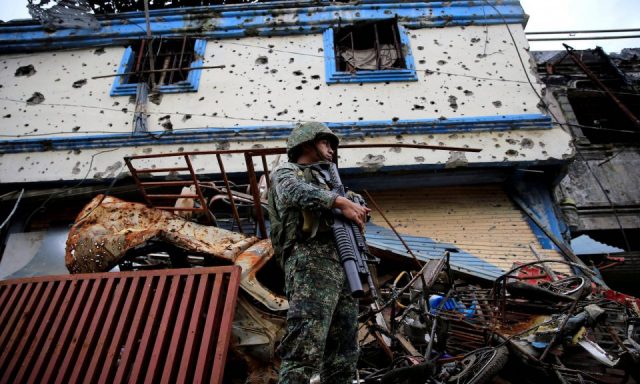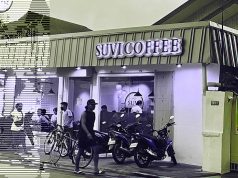MARAWI CITY, Philippines — With a grimace, Brigadier General Melquiades Ordiales of the 1st Marine Brigade recounted the painful gains made against Islamist militants in Marawi City.
“It took us one week from this point to that point, to cross that street,” he said, casting his eyes to the other side of a two-lane road in the heart of the city, lined by three-story buildings shattered by air strikes and the remaining walls riddled with bullet holes.
“It was really very, very tough.”
The grinding urban warfare that has destroyed much of the grandly named Sultan Omar Dianalan Boulevard shows just how much of a threat Islamic State is to the Philippines and potentially other countries in the Southeast Asian region.
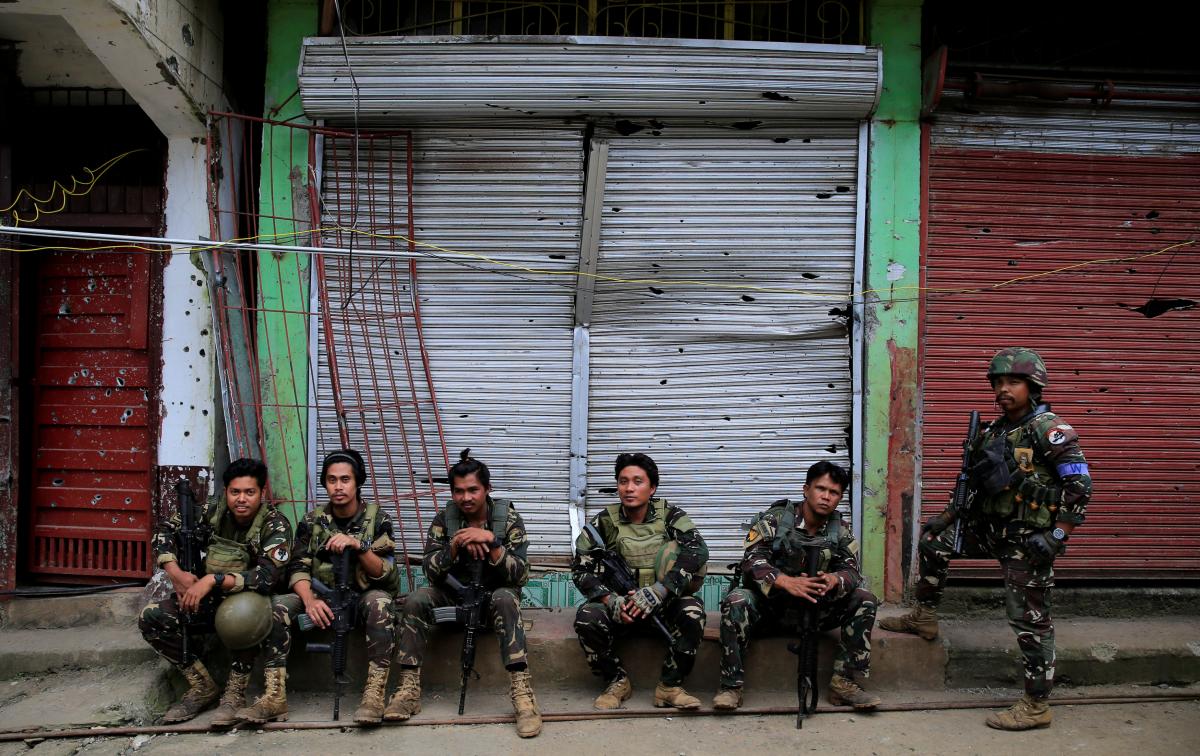
But when the fighting started, authorities were unfazed.
After the Islamic State-backed militants took over large parts of picturesque, lakeside Marawi in May, Defense Secretary Delfin Lorenzana predicted the entire conflict would be over in one week.
Now, after four months of intense aerial bombardment and house-to-house battles, commanders believe they are in the final stages of the operation to oust the extremists from the city.
In the past two weeks, military officials say they have conquered three militant bastions, including a mosque, and restricted about 60 remaining guerrillas to about 10 devastated city blocks in the business district. Patrols have been increased on the lake to prevent the supply of armaments and recruits to the holed-up militants.
High-powered weapons
Military officers who have skirmished for years with Islamic insurgents in the southern Philippines say the battle in Marawi has been more intense and difficult than earlier encounters.
The Islamic State militants are better armed, with high-powered weapons, night vision goggles, the latest sniper scopes and surveillance drones, said Captain Arnel Carandang, of the Army’s First Scout Ranger Battalion.
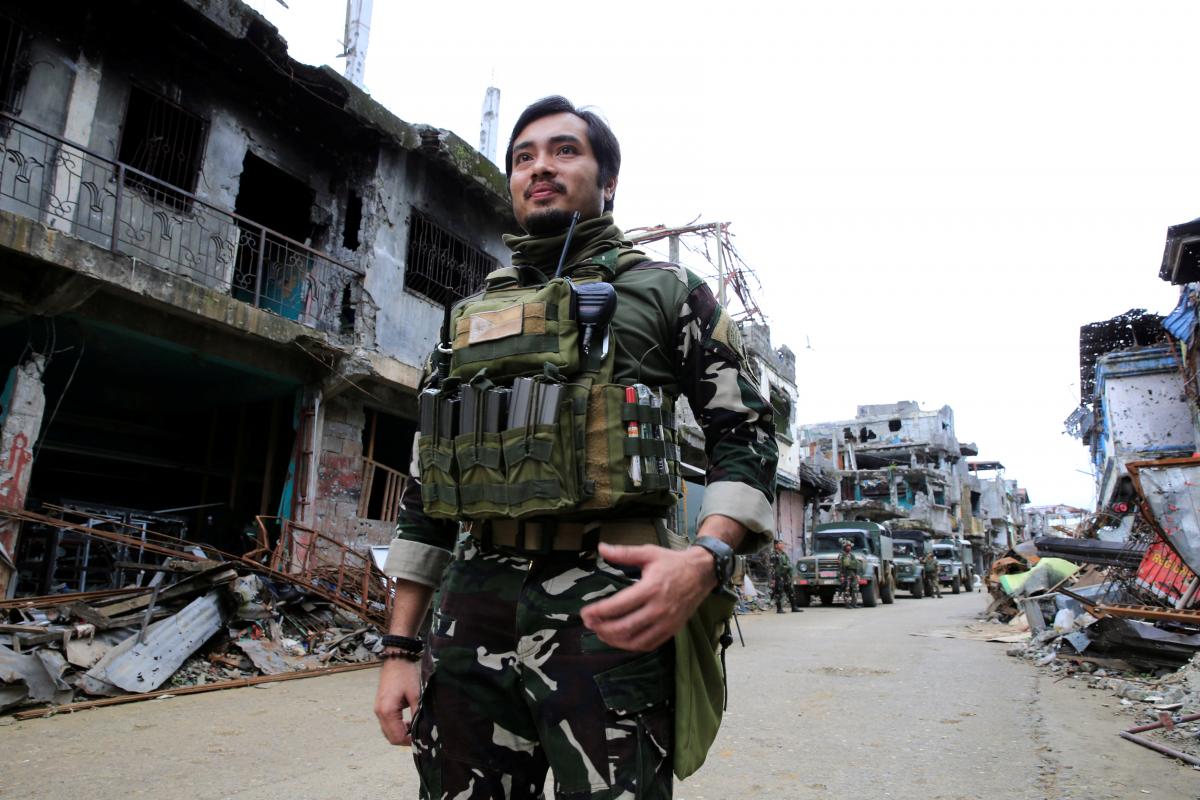
He said he has served for almost a decade in the remote jungles and mountains of Mindanao. Now, Carandang says, the military is in unfamiliar urban terrain.
The militants have exploited the battlefield to their advantage and held off government forces despite a 10-to-1 numerical advantage for the troops.
Borrowing heavily from Islamic State tactics in the Iraqi city of Mosul, they have surrounded themselves with hostages and used snipers and a network of tunnels.
Marawi’s underground drainage system and “rat holes” — crevices in the walls of high floors allowing access to adjacent buildings — have enabled the rebels to evade bombs and remain undetected, soldiers at the battlefront said.
“We believe there have been some foreign terrorists that have been directing their operations, that’s why they are, how do I define this, really good,” said Carandang.
“We have seen some cadavers of foreigners. Some are white, some are black and some tall people we guess are Asians (from outside the Philippines). We have been hearing in their transmissions some English speaking terrorists.”
Scavenge for food
Hostages — many of them Christians — have been deployed to build improvised explosive devices, scavenge for food and weapons in the heat of battle and fight for the Islamist rebels, according to those who escaped.
“When we were first moved to the mosque, there were more than 200 of us,” an escaped hostage, who asked not to be identified for safety reasons, told Reuters last week.
“We gradually became fewer. People would go on errands but they wouldn’t come back. They either escaped or died. By the time I left, there were only about 100 of us.”
The account could not be verified, but military officials confirmed the man escaped from Marawi in early August.
The hostage said the militants were excited by their successes in Marawi, speaking often of the advantages of urban warfare and talking about some of their next possible targets, including other cities in Mindanao and Manila.
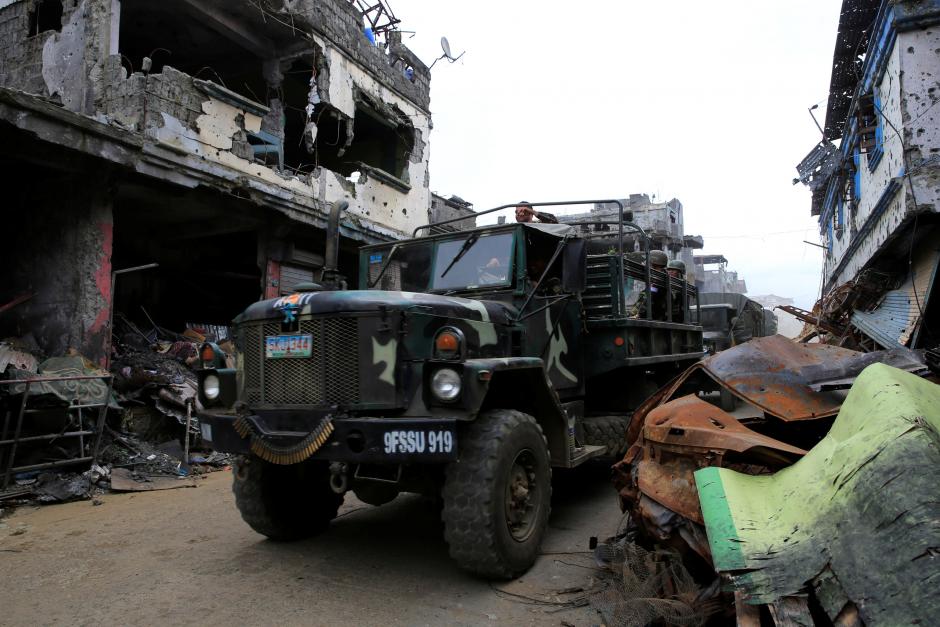
“They said they could hide well in the cities. They can get civilians to become hostages and it’s more difficult in the mountains with only the soldiers,” he said.
Many of the fighters are young recruits, who are fanatical and accomplished fighters, the soldiers said.
“By the way they move and their tactics, you can see they’ve been trained,” said Colonel Jose Maria Cuerpo, deputy commander of the 103rd Brigade fighting in Marawi.
Proposal rebuffed
Much of this bloodshed could have been avoided, local political leaders told Reuters.
Naguib Sinarimbo, a Muslim leader who has negotiated between the military and Islamic separatists for years, said he and other elders had urged the armed forces to allow militias and rival Islamist groups to take the lead in ousting the Islamic State militants.
The groups were familiar with Marawi’s terrain and, through family and clan links, could influence many of the fighters to lay down their weapons, they told the armed forces.
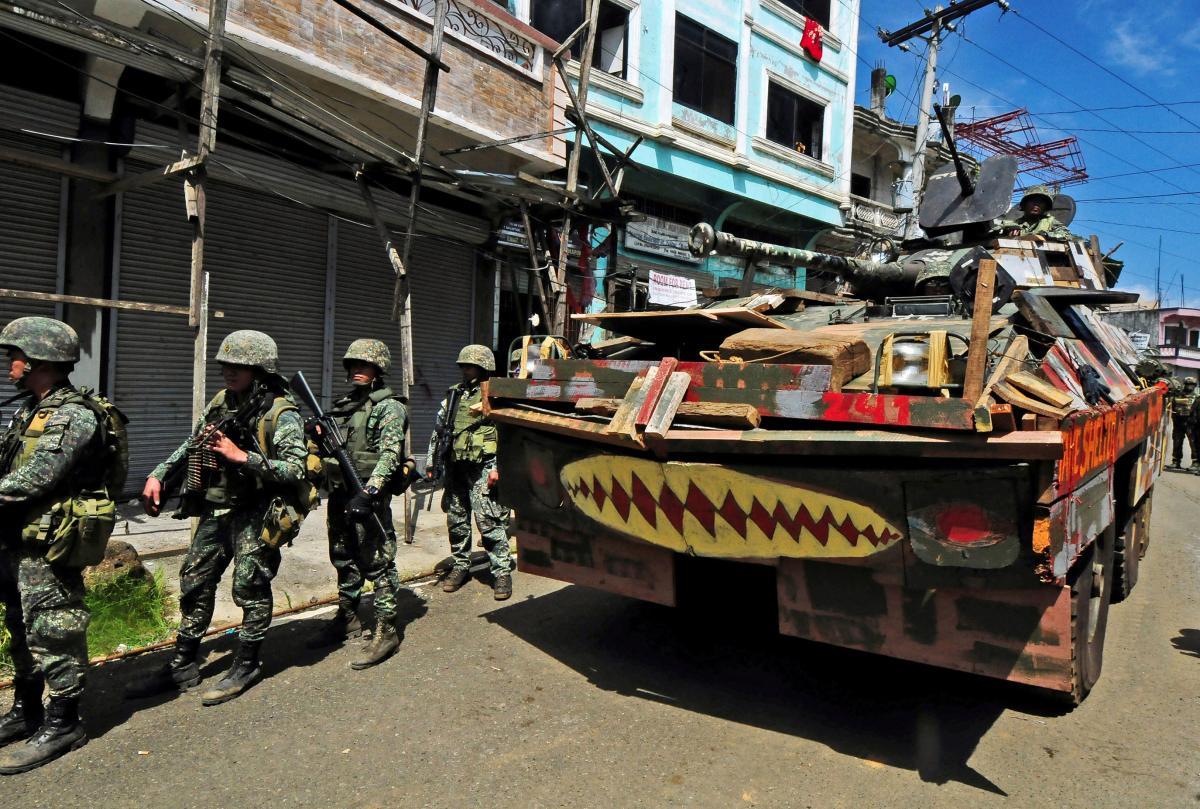
The proposal was rebuffed, Sinarimbo said. Air power, the military assured them, was the path to a quick win.
Zia Alonto Adiong, spokesman of the Marawi Crisis Management Committee, said the military also had doubts about the loyalty of some of the “political personalities” offering to provide their militias to push out the fighters.
The result has been a city in ruins, hundreds of thousands of residents displaced and “emboldened” Islamists, Sinarimbo said.
“They proceeded with the aerial bombing but they didn’t take the city,” Sinarimbo said. “The military lost authority.”
In addition, the devastation of the city will play into militants’ hands, creating resentment and further radicalizing many youngsters, he said.
Marawi residents in evacuation centers or staying with relatives elsewhere are becoming increasingly frustrated, said Adiong. Some residents were disappointed and angry that requests for a moratorium on bank loan repayments had not been met, he told Reuters.
Bangko Sentral ng Pilipinas governor Nestor Espenilla told Reuters legislation would be needed for a debt moratorium and was being studied.
Mindanao has long been marred by the decades of Muslim hostility to rule from Manila. After years fighting insurgent groups and then long negotiations, the government signed an agreement in 2014 to give Muslim majority areas in Mindanao autonomy. But the deal has been long delayed.
“This part of the Philippines is fertile ground to plant violent extremism,” Adiong said. “There is a narrative of social injustice that is strong. Young people are fed up with the peace process and nothing concrete or sustainable has developed.”
“(The militants) use this as the basis to entice people, to get support of the local people.”
Last stand?
In Marawi, some in the armed forces are hopeful that at least some militants will surrender and hand over between 45 to 50 civilian captives. Carandang, the Scout Rangers captain, however said indications were the rebels are preparing for a bloody final stand.
“We are monitoring the enemy’s transmissions and it’s like during these final days they are being more fanatical,” he said. “Transmissions indicate they are preparing for suicide bombings.”
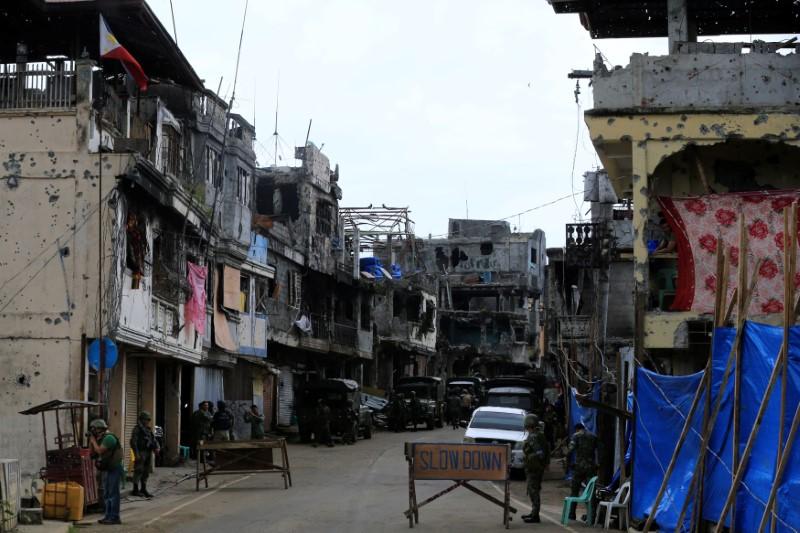
An unused suicide vest was discovered this month in Marawi’s Grand Mosque, a former stronghold of the militants, government sources told Reuters.
Suicide attacks are rare in the Philippines despite decades of Islamist insurgency.
”That’s the difference between here and Syria and Iraq,” said Ordiales, the marine general. ”It’s almost the same war tactics and fighting tactics, the one thing that’s not the same is the human bomb or the suicide bombing.
“It hasn’t happened, not yet.”

